The 2022 World Series and a series of notes:
1. Philadelphia’s momentum is raging now. I don’t know if the Houston Astros will recover from the severe burn of five Philly home runs that left a red glare over the ballpark in the 7-0 blowout in Game 3. The Phillies lead the World Series 2-1, and have the next two games at home, at The Bank, where both the decibel level and beer consumption may be at an all-time high.
2. As loud and rowdy as it was in Game 3, the noise wasn’t enough to shake Astros manager Dusty Baker from his snoozing. For the second time in three games, Baker slumbered while his starting pitcher combusted. While Baker slept in Game 1, Justin Verlander gave up a 5-0 lead, becoming weaker with every pitch, as the Phillies hammered away to tie the score and later win 6-5 in 10 innings. Tuesday night, with Baker drowsing again, Lance McCullers Jr. was shelled for five home runs by the Broad Street Bombers. Bryce Harper, Alec Bohm, Brandon Marsh, Kyle Schwarber and Rhys Hoskins sent rockets into the night, striking the home-run target … all launched during the first five innings. And off the same pitcher, poor McCullers.
3. Baker and pitching coach Josh Miller seem unaware of the new October way: be aggressive, extra aggressive – or be on your way home. On Tuesday night Baker and Miller showed no inclination to be assertive or decisive. And this was absolutely crazy, because every arm in a deep and abundantly talented Houston bullpen was rested and at full capacity … the same bullpen that has clamped down and allowed only four earned runs in 44 and ⅓ innings this postseason pitching to a 0.81 ERA and with a 33.5% strikeout rate. Before the fifth – when Philly scored three more runs via two homers – the Astros trailed 4-0 but still had a chance to fight back.
4. Yes, I know, the Astros lost by seven. I know they didn’t score a single run, and had only five hits, all singles, in nine innings. But early on, we didn’t know that Game 3 would end in a shutout. When you’re down 4-0 after two innings, there’s plenty of time to rebound, just as the Phillies did in Game 1 at Houston. But in both losses in this series, Baker has declined to use MLB’s best bullpen to his advantage, choosing to stick with an overwhelmed and overmatched starting pitcher as the bonfire blazed out of control. Baker is managing critically important World Series games as if they’re low-level, low-pressure, getaway–day exercises in the middle of May. The Astros have more pitching depth than Philadelphia; that was the No. 1 reason why most forecasters predicted a Houston triumph over Philadelphia. But here’s what the Astros don’t have: manager who will utilize that depth to give his team its best shot to win. Somebody wake up Dusty before it’s too late, and the Astros their third World Series in a row to an underdog opponent. This is looking like 2019 (Washington) and 2021 (Atlanta) all over again.
5. I don’t know if McCulllers was tipping pitches. That’s the popular theory, and the Phillies gave vague explanations – non-answers – when pressed with the questions after Game 3. It’s certainly a plausible theory, especially after the FOX cameras showed Harper calling Bohm over from the on-deck circle to give him an urgent message. The first inning ended before Bohm could take his at-bat, but he led off the second inning by blasting a first-pitch homer to deep left that gave Philly a 3-0 lead. If, in fact, McCullers was inadvertently tipping pitches in a way that the Phillies knew what pitch was coming … well, write your own joke here. The Astros knew what was coming in the 2017 postseason when they used technology to steal signs and bang on a trash can to give their hitters advance notice on what to expect. Maybe the Astros learned what it’s like to be on the other side of the competition – the wrong side – when a team knows what pitch is coming.
6. It could be that McCullers was just too predictable. As we noted here in this column before Game 3, McCulllers wasn’t a good matchup for the Astros against the Phillies because he doesn’t throw many four-seam fastballs. The Phillies aren’t so hot against that pitch, but they’re powerful and dangerous against breaking pitches and offspeed stuff. As Tom Verducci noted after the Game 3 debacle: “McCullers threw 82% of his pitches in the narrow range of 82 to 89 miles per hour. Eighty-two percent. McCullers can throw as hard as 96 miles per hour, but he uses his fastball like a demitasse spoon, which is to say only on special occasions.”
7. With the McCullers all but refusing to throw hard-fast pitches to the Phillies – a trend that the Phils quickly picked up on – the home team could sit on his softer breaking pitches. And crush them. Again: where was Baker and the pitching coach on this? Where was catcher Martin Maldano, who has such a great reputation that some pundits (laughably) compare him to Yadier Molina? How can the manager, pitching coach and catcher fail to comprehend the potential repercussions of repeatedly and predictably throwing pitches that the Phillies couldn’t wait to feast on? Does anyone with the Astros plan to take charge? And why doesn’t McCullers want to throw a 96 mph fastball? If this series goes the full seven games, McCulllers is in line to pitch Game 7. If that happens, will McCullers make the crucial and necessary adjustments? Or will he throw more batting practice to the Phillies?
8. Stat of the Day: McCullers missed much of the regular season while recovering from a torn flexor tendon. In eight regular starts he allowed 0.7 home runs per nine innings. In his 47.2 innings McCullers faced 195 batters and got punched for only four home runs. In Game 3, McCullers worked 4.1 innings, faced 20 batters, and was clobbered for five home runs.
9. The Phillies have bashed 14 home runs in 22 postseason games so far. And in their 11 victories they have cudgeled 21 home runs. They’re slugging .443 this postseason. The Phillies take fantastic at-bats, but there isn’t much finesse. These fellows want to hit the ball a long way … and they do.
10. The travesty of Game 3 put the Phillies in enviable shape. To win the World Series if the event goes seven games, the Astros would have to win three of the remaining four games. Two of the four will/would be played at Philadelphia, where the Phillies are 6-0 in the postseason.
11. After getting a terrific five-inning start from lefty Ranger Suarez in Game 3, the Phillies gained another edge. They didn’t have to use their three–best leverage relievers: Jose Alvarado, Seranthony Domínguez, or Zach Eflin. With a 7-0 lead, manager Rob Thomson could keep them parked in the bullpen and go with four middle relievers without risk. And now he has his best bullpen guys fresh and ready to work as needed in the next two games before the teams have an off-day Friday to travel to Houston. (If necessary.)
12. The Astros are capable of comebacks – but a 7-0 deficit was too much. This postseason the Astros erased an early four-run deficit four-run deficit to win their first playoff game against Seattle. If the Astros could get to Philly’s middle relievers, they have a much greater chance of doing damage.
13. In Game 4, the desperate Astros will start Cristian Javier, 25, who last was seen shutting out the Yankees into the sixth inning of ALCS Game 3. In his final five starts of the regular season Javier allowed one run in 28.1 innings with 37 strikeouts and followed that up by yielding one hit and nine strikeouts in 5.1 scoreless innings against the Yankees in ALCS Game 3. That’s one earned run and 46 strikeouts in 33.2 innings over his last six starts. Philly counters with co-ace Aaron Nola. This is pretty much your standard must-win game for Houston. The Astros have the right guy for the Game 4 assignment. As I wrote about earlier this week, Javier’s four-seam fastball is the kind of pitch that gives the Phillies fits.
14. The Astros need slugger Yordan Alvarez to get going. He’s 1 for 11 in the World Series (.091) with four strikeouts. And the Astros need offense from the DH spot; this postseason their designated hitters are 4 for 36 (.111) with a .342 OPS.
Thanks for reading …
–Bernie

For the last 36 years Bernie Miklasz has entertained, enlightened, and connected with generations of St. Louis sports fans.
While best known for his voice as the lead sports columnist at the Post-Dispatch for 26 years, Bernie has also written for The Athletic, Dallas Morning News and Baltimore News American. A 2023 inductee into the Missouri Sports Hall of Fame, Bernie has hosted radio shows in St. Louis, Dallas, Baltimore and Washington D.C.
Bernie, his wife Kirsten and their cats reside in the Skinker-DeBaliviere neighborhood of St. Louis.



